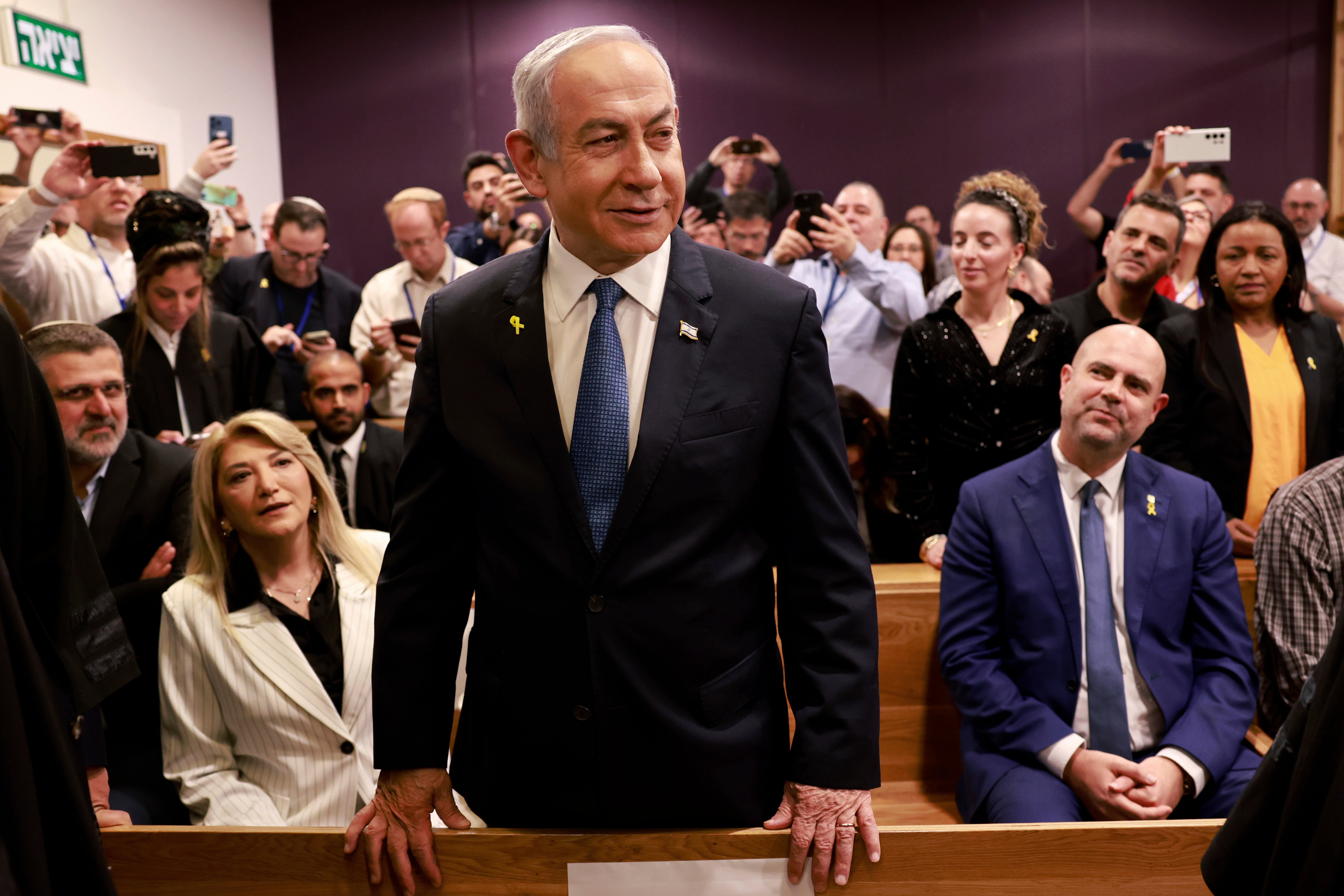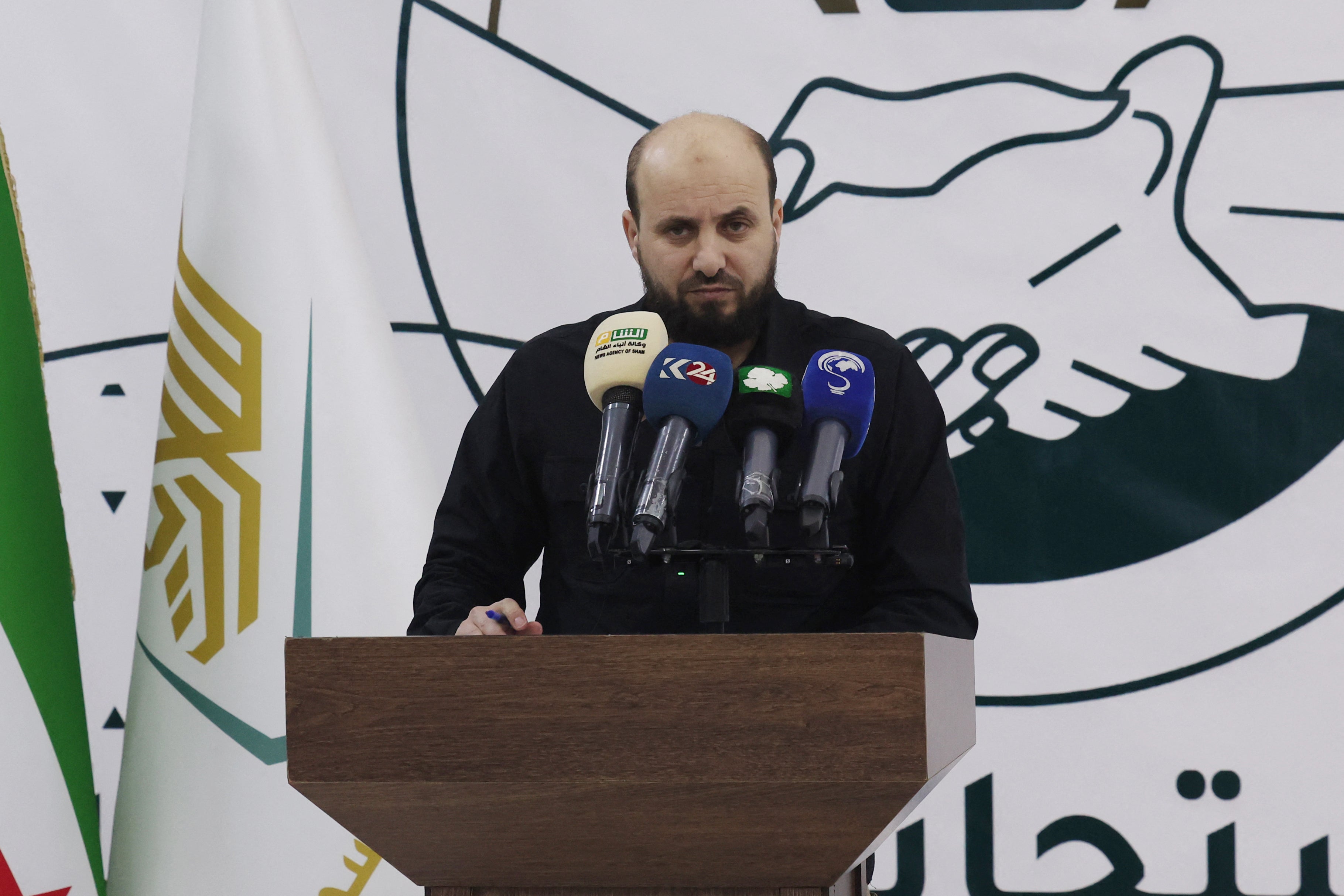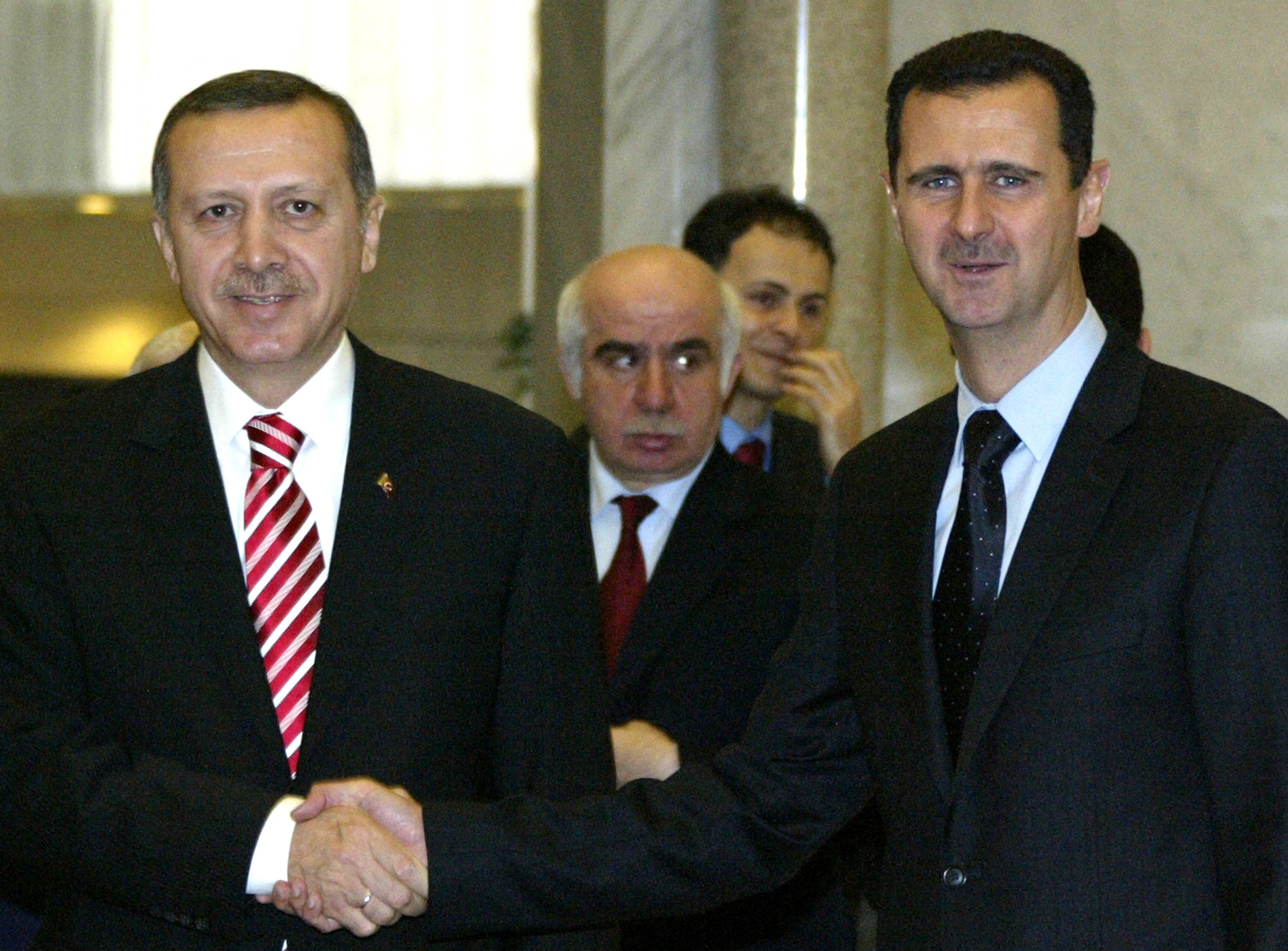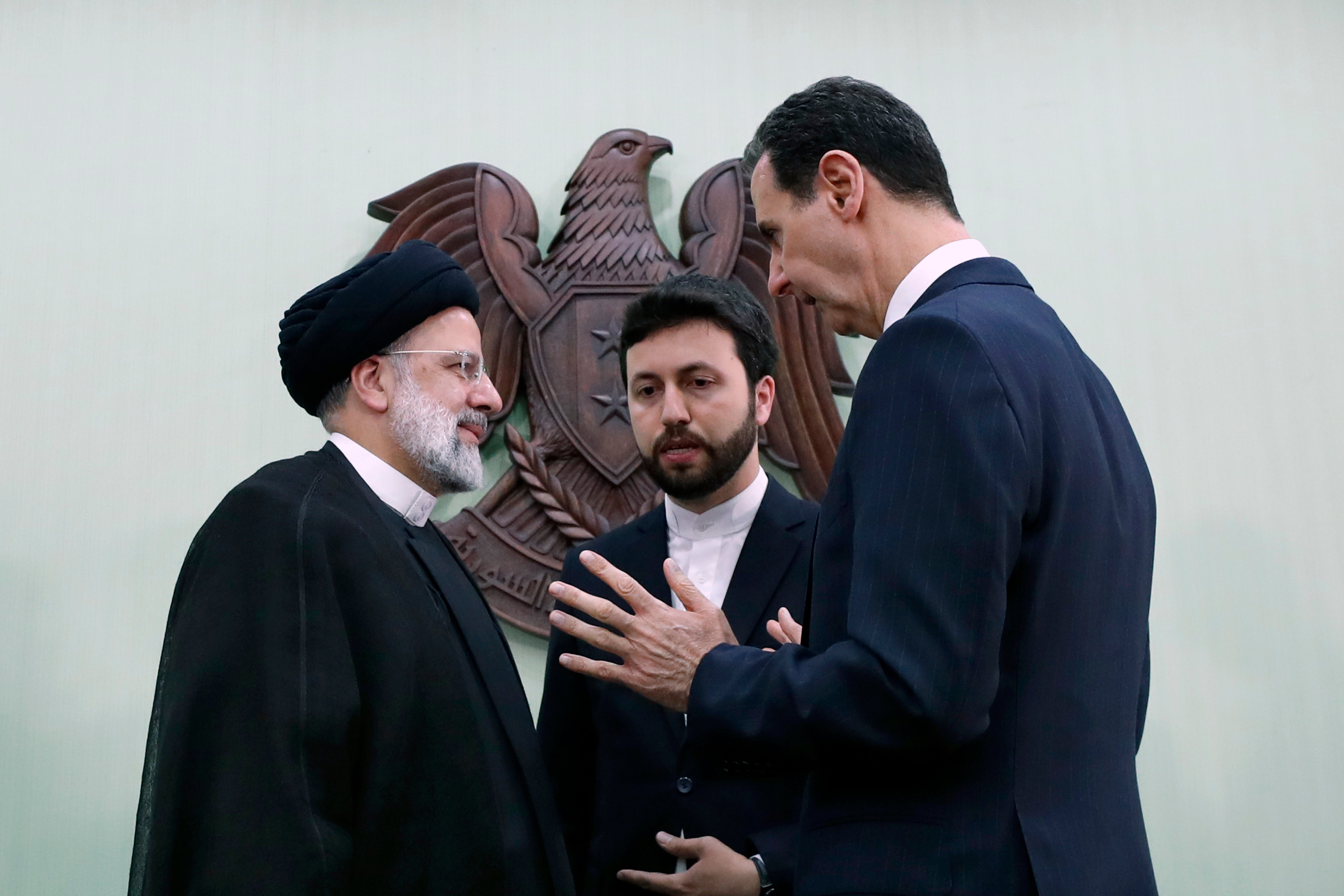What does fall of Assad in Syria mean for the Middle East and the West?
How will the fall of the Assad regime reshape geopolitical dynamics worldwide?

Your support helps us to tell the story
From reproductive rights to climate change to Big Tech, The Independent is on the ground when the story is developing. Whether it's investigating the financials of Elon Musk's pro-Trump PAC or producing our latest documentary, 'The A Word', which shines a light on the American women fighting for reproductive rights, we know how important it is to parse out the facts from the messaging.
At such a critical moment in US history, we need reporters on the ground. Your donation allows us to keep sending journalists to speak to both sides of the story.
The Independent is trusted by Americans across the entire political spectrum. And unlike many other quality news outlets, we choose not to lock Americans out of our reporting and analysis with paywalls. We believe quality journalism should be available to everyone, paid for by those who can afford it.
Your support makes all the difference.For over half a century, one family ruled Syria. Yet nearly overnight, as rebels advanced through the country and ultimately reached the capital, Damascus, that brutal reign came to an end.
After 13 years of civil war under the iron-fisted rule of former Syrian leader Bashar al-Assad, there is now hope for millions of Syrians who endured a campaign of barrel bombs, forced disappearances and torture.
But many questions remain as party lines shift and alliances in the region undergo dramatic changes.
How will the fall of the Assad regime reshape geopolitical dynamics worldwide, and what does it mean for key political players?
Israel

Israeli Prime Minister Benjamin Netanyahu claimed credit for the fall of Syrian President Bashar al-Assad’s regime, heralding it as a turning point in the Middle East and saying it was a “direct result of the blows we inflicted on the main supporters of the Assad regime.”
Professor Yossi Mekelberg, a senior consulting fellow at Chatham House, warned against premature conclusions about the region’s future. He told The Independent: “Netanyahu would like to take credit for everything except the things which have gone very, very wrong.”
Prof Mekelberg said that Israel’s actions had “weakened Hezbollah” and disrupted Iran’s supply lines, which emboldened Syrian rebels to challenge Assad’s regime but said the future is still uncertain. He said: “When a regime of 54 years has completely shuttered and gone, 48 hours later any prediction would be almost irresponsible.”
One major concern for Israel is the fragmented nature of the Syrian opposition. Rebel groups now vying for control include factions with ties to al-Qaeda and ISIS, raising fears of increased instability along Israel’s northern border.
Prof Mekelberg said we still “don’t know who is going to control Syria” and while the border with Syria has been quiet for decades under a 1974 agreement, that stability is now at risk.
Prof Mekelberg said that Israel must tread carefully in the post-Assad landscape: “As a country, you watch and see, try to open channels and see what their intentions are. Hope for the best, prepare for the worst.”
The West

For the West, the collapse of the regime is a cause for both cautious optimism and significant concern.
“This is an opportunity to stabilize Syria in a more meaningful way than was ever possible,” Julien Barnes-Dacey, director of the Middle East and North Africa Programme at the European Council on Foreign Relations, told The Independent.
He continued: “It could open the pathway for refugee returns and dial down the impacts of conflict which have had such a big impact on European politics for the last few years.”
But Mr Barnes-Dacey said success hinges on Hay’at Tahrir al-Sham’s (HTS), willingness to embrace power-sharing rather than monopolising authority: “If they want to replace one authoritarian regime with another then clearly Europeans need to be more wary about offering incentives.”
In the US, president Joe Biden and senior officials have described this moment as a “historic opportunity” for the Syrian people to move beyond decades of oppressive rule under Assad. However, they have also acknowledged that the country faces significant risks and uncertainties during this transitional period.
President-elect Donald Trump reiterated his longstanding opposition to US involvement in Syria. On social media, Trump dismissed Syria as “not our fight” and warned against further engagement.
HTS is labelled a terrorist organisation by the UK, EU, and US and Mr Barnes-Dacey warned that governments risk viewing the situation “through a prism of fear and threats,” which could perpetuate negative dynamics.
Mr Barnes-Dacey said strong leadership is needed to mobilise economic resources and end sectoral sanctions on Syria which could create pathways for recovery and growth. He said sanctions are “clearly an obstacle but not insurmountable” if used to get positive outcomes. He continued: “Given the dire state of the country, it’s an imperative.”
Russia

The rapid collapse of Assad’s regime has exposed vulnerabilities in Moscow’s reach, with implications for its ambitions not just in the region, but also in Africa and Europe.
Russia expert Mark Galeotti told The Independent that much depends on whether Russia can retain its two key military bases in Syria: Tartus, a naval facility, and the Khmeimim airbase.
Losing these would also undermine Russia’s power in Africa, as the bases served as staging points for operations across the continent. Galeotti said that “the loss of Tartus would mean the end of any pretensions of being a real naval power.” Losing the Khmeimim airbase would also complicate Moscow’s logistical capabilities, forcing Russia to rely on Turkish airspace for supply routes, he said.
Despite the loss of Assad, a key ally of Russian president Putin, Mr Galeotti said he has been “struck by the relative calm in Russian official narratives.”
Keir Giles of Chatham House said: “The fall of Assad is undoubtedly a setback for Russia’s ambitions to project power in the Middle East.” He suggested that Assad’s fall might signal to other authoritarian regimes that Russian support has limits.
“This provides an opportunity for Western powers—should they be willing and able to take it—to undermine the willingness of some of the world’s most repellent regimes to invite Russian influence”, he said.
Turkey

The sudden collapse of Assad’s regime has left most global powers scrambling to reassess their strategies in Syria, but for Turkey, it presents a unique opportunity to solidify its influence in the region.
As Catherine Philp of The Times said: “No country is better placed than Turkey to emerge as the great winner from the fall of Assad.” Bronwen Maddox, director of Chatham House, pointed to complexities: “Turkey is close to al-Jawlani [leader of Hayat Tahrir al-Sham] but does not control his forces; the Syrian National Army is more Ankara’s proxy. Until now, Turkey has focused on issues near its border, particularly the challenge posed by Kurdish fighters. Now, it must engage with what’s happening in Damascus and southern Syria.”
Wallace says Erdogan’s success in uniting disparate rebel factions, including HTS, was instrumental in Damascus’s downfall. With Russia and Iran mourning the loss of their ally and the West assessing its next steps, Turkey stands ready to assert itself as a dominant player in Syria’s uncertain future.
Iran

The fall of Assad marks a significant blow to Iran’s influence in the Middle East, dismantling a key part of its regional strategy. For over a decade, Tehran had invested heavily in propping up Assad’s regime but now Iran faces the collapse of its network of influence.
Iran’s investment in Syria was not just about supporting an ally but also about ensuring a direct supply route to Hezbollah in Lebanon. Mohammad Javad Akbarin, a dissident Iranian political analyst, told Deutsche Welle (DW) that Tehran might now focus on preventing the establishment of a stable government in Syria to maintain leverage in the region.
In its first statement following Assad’s fall, Iran’s foreign ministry emphasised its historical ties with Syria, signalling an intent to maintain relations with whatever new leadership emerges.
Join our commenting forum
Join thought-provoking conversations, follow other Independent readers and see their replies
Comments